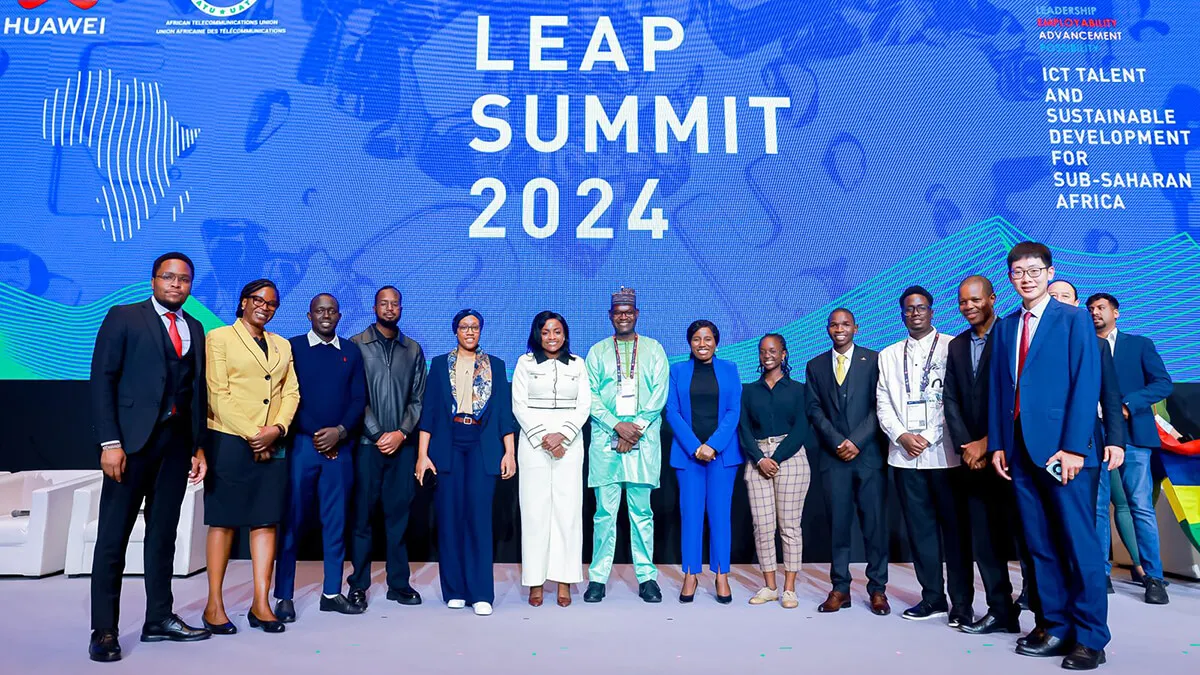African ICT and telecom leaders urged governments throughout the continent to cut the price of digital devices to close the digital gap and increase productivity in several industries during the LEAP summit in Shanghai, China.
One of the main events of the renowned Mobile World Congress was the distinguished LEAP summit, which took place in Shanghai, China, from June 24 to June 28, 2024. Prominent personalities and business executives gathered for this prestigious event to participate in thought-provoking conversations and exchange perspectives on the most recent developments, inventions, and trends in digital technology.
The summit promoted cooperation and advanced the IT sector by giving important actors a forum to discuss ideas, look into opportunities, and resolve issues in the digital ecosystem.
Read also: World Bank Funds Nigeria’s ID4D with $45.5M
A Collaborative Approach to Unlock Africa’s Digital Potentials
John Mo, the secretary general of the African Telecommunications Union (ATU), made a passionate plea to the tech industry to join forces with African governments to establish manufacturing plants on the continent.
He emphasised the urgent need for affordable digital technologies, particularly in rural areas where digital literacy remains a significant challenge.
He pointed out that the high cost of digital goods and services is one of the main barriers to closing the access gap and widening the already-existing digital divide.
He emphasised that lowering taxes on digital devices and services would be a critical first step in enabling millions of Africans to have greater access to and affordability of technology.
By partnering with governments to set up manufacturing plants in Africa, tech companies can benefit from reduced production costs while contributing to local economies’ growth. This collaborative approach, Mo argued, would not only increase access to digital technologies but also create jobs, stimulate innovation, and drive economic development across the continent.
He further stated the need to empower young people to use digital tools for prosperity. He noted that Africa’s median youth age is 19, presenting a vast potential for digital growth. He called for cooperation between governments and tech firms to unlock this potential.
The Impact of Tax Reduction on Youth’s Tech Access
Sophia Nantongo, Uganda’s Secretary for ICT, reiterated John Mo’s remarks by advocating for lower taxes on digital devices to make them more accessible to youth. Because they are heavily taxed and imported, more than 90% of digital devices in Uganda are hard to obtain.
Read also: IT-IQ and Ruckus Unveils Tech Partnership
To create jobs and lessen dependency on imported equipment, Nantongo asked tech companies such as Huawei to establish manufacturing units in Uganda.
This would result in increased access to digital technologies, increased local innovation, and economic growth. By closing the digital divide, lower taxes would enable young people to utilise technology better and develop their talents.
Tatenda Mavetera, Zimbabwe’s ICT minister, urged young people to embrace ICT for future opportunities. Meanwhile, Kenya’s principal education secretary, Dr Beatrice Muganda, called global tech companies to turn African universities into training centres to produce more skilled graduates.
















